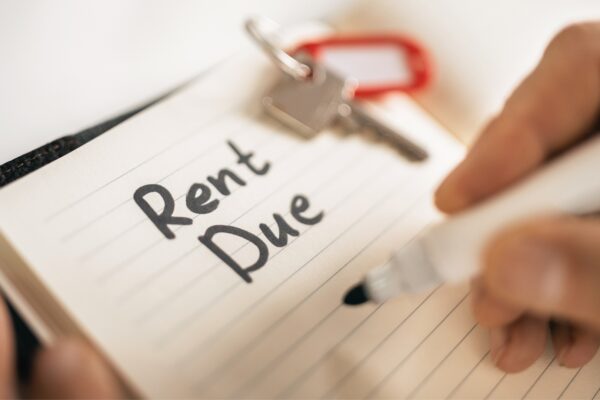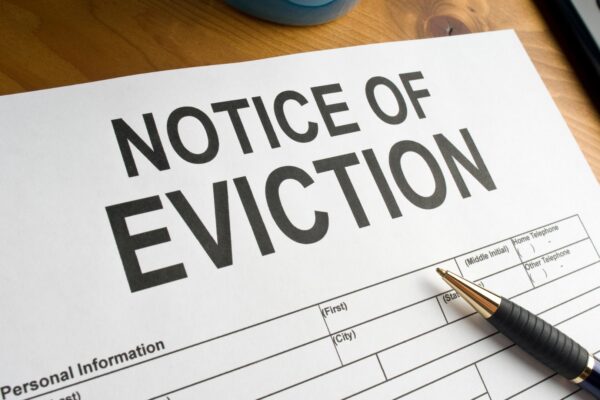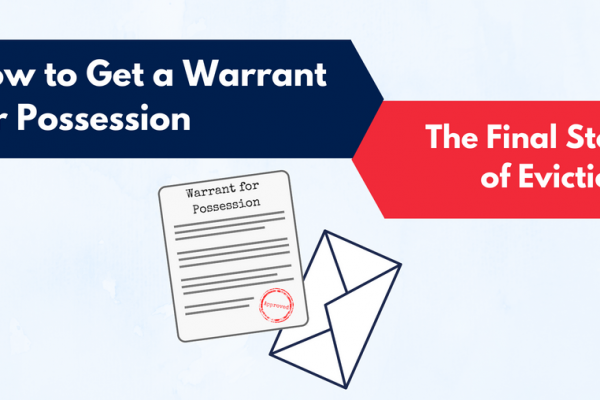No landlord wants to deal with rent arrears, but the truth is they can happen, even with reliable tenants. There are many reasons why someone might struggle to pay rent on time, whether it’s due to a change in their job, unexpected bills, or other personal circumstances.
While most tenants pay their rent consistently, it’s wise to have measures in place to protect your income if things don’t go as planned. Being prepared helps reduce financial pressure and lets you address any issues promptly.
In this guide, we’ll explain everything you need to know about rent arrears and share practical steps you can take to lower the risk.
- What is rent arrears?
- 5 tips for landlords to prevent rent arrears
- Understanding your eviction options for rent arrears
Collect rent automatically with Rent Now. Our built-in Rent Collection saves time and keeps your payments on track. Get Started with Rent Now
What is rent arrears?
Rent arrears occur when a tenant misses a rent payment or pays their rent late. Even a single missed or delayed payment means the tenant owes money to the landlord, which can cause problems if it continues.
In England, landlords have the right to begin eviction proceedings under Section 8 of the Housing Act 1988 if rent arrears build up. We’ll explain how this process works in more detail later in the guide.
5 tips for landlords to prevent rent arrears
While late rent payments are generally low across the UK, you don’t have to just wait and hope for the best. There are several steps you can take to reduce the chances of rent being paid late or arrears building up during your tenancy without immediately resorting to legal action.
1) Never skip tenant referencing
One of the main reasons tenants fall behind on rent is simply because they can’t comfortably afford it. With affordable housing in short supply in many areas, some tenants might apply for homes that stretch their budgets too thin, often out of necessity.
By ordering a tenant referencing report, you can avoid letting to tenants who may struggle to pay. These reports include an affordability check, which looks at whether a tenant’s income is enough to cover the rent with some financial breathing room. If a tenant doesn’t pass this check, it’s a clear sign you should be cautious about their ability to pay rent on time.
At OpenRent, our comprehensive tenant referencing reports go beyond basic checks, providing detailed information on income, credit history, and past rental behaviour. This helps you make informed decisions and significantly reduce the risk of rent arrears.
2) Ask your tenants to set up a standing order
Not all rent arrears are intentional. Sometimes tenants simply forget to pay or struggle to manage their finances, especially if they don’t receive a monthly salary. This kind of disorganisation can cause delays that disrupt your cash flow.
To avoid this, ask your tenants to set up a standing order from their bank account to yours, scheduled a few days before the rent is due each month. This helps make sure the rent arrives on time without you having to chase it.
If you want an even simpler solution, consider using our rent collection service, available to landlords who set up their tenancies through Rent Now. With this service, you’ll get your rent transferred directly without delay, have late payments chased automatically, and be able to track payment status in real time through an easy-to-use dashboard.
Setting up a reliable payment system, whether through standing orders or OpenRent’s rent collection, can help you save time and protect your rental income.
You might also be interested in…
- Understanding Leasehold Reforms in 2026
- How to Increase the Rent by Serving a Section 13 Notice
- How to Serve a Section 21 Notice to Tenants
- Maximum Tenancy Deposit: How to Calculate Five Weeks’ Rent
- How to Calculate Pro Rata Rent
3) Keep communications open
If your tenant is self-employed, doesn’t have a regular monthly salary, or receives benefits, their income may fluctuate from month to month due to factors beyond their control.
As a landlord, it’s helpful to know about any changes before the rent is due. By maintaining a good relationship, your tenant will feel comfortable letting you know if they expect their income to change, so you can both plan ahead.
If a tenant gives you a polite warning that they might be late with, or struggle to pay, the rent, it’s important not to discourage this openness. Responding with anger or hostility will likely cause them to stop communicating, which only makes things harder for both of you.
Good communication lets you decide the best way forward. If the tenant believes their difficulties are temporary, it’s often best to support them through the short term.
But if they’ve lost their main source of income and can’t afford the rent anymore, you might consider discussing a mutual surrender of the tenancy. This way, the tenant avoids getting into debt, and you’re free to find a new tenant who can pay reliably.
Remember, none of this is possible without a positive landlord-tenant relationship where communication is encouraged when circumstances change.
4) Opt for rent guarantee insurance
Rent guarantee insurance can offer valuable protection by covering your rental income if a tenant falls behind on payments. This means you won’t have to bear the full financial impact if rent arrears occur, giving you peace of mind and financial security.
With OpenRent’s policy, you can submit a claim if your tenant falls behind, covering tenancies with rents up to £3,000 per month. Our rent guarantee insurance also includes legal expense cover, so you won’t have to worry about legal costs if you need to take action through the courts. Plus, the policy stays active even if you change tenants, as long as the new tenant passes the referencing checks.
While insurance can’t prevent arrears, it acts as a safety net so you can focus on managing your property with confidence.
5) Consider adding a guarantor or taking rent in advance
Adding a guarantor to your tenancy agreement can be a valuable way to protect yourself against rent arrears. A guarantor is legally responsible for covering unpaid rent if the tenant falls behind. Often, simply informing the guarantor that rent is overdue prompts payment, helping you avoid long delays.
Beyond providing an alternative source of rent money, guarantors also encourage tenants to pay on time because they don’t want to cause problems for people close to them. This added responsibility can make a real difference to how seriously tenants take their rent payments.
Another option is asking for rent in advance. Usually, rent is paid monthly in advance, but you could request several months upfront – typically the start of the tenancy. This means tenants won’t fall into arrears during that period since the rent is already covered. While not all tenants can or want to pay months in advance, in areas with high demand, you may find tenants happy to do so.
It’s important, however, to be reasonable and flexible. Don’t push tenants too hard or demand more than feels fair – this can backfire and deter good tenants. Also, once the implementation of the Renters’ Rights Act begins, taking rent in advance before the tenancy starts will be banned, so stay updated on any changes.
Protect your rental income before handing over the keys. Referencing helps you confirm your applicant can afford the rent and is financially reliable. Order Tenant Referencing
Understanding your eviction options for rent arrears
If your tenant has fallen behind on rent and missed several payments, there are legal steps you can take to regain possession of your property. In England, landlords typically have two main options to begin the eviction process.
The first is serving a Section 8 notice. This can be used during the fixed term of the tenancy when the tenant has broken the terms of the agreement, like not paying rent. It allows you to begin proceedings to regain possession of your property.
The second option is serving a Section 21 notice. This lets you request possession once the fixed term has ended, without needing to provide a specific reason.
A major change under the Renters’ Rights Act will be the abolition of Section 21 notices. For now, though, they remain a valid legal option for landlords. If needed, you can serve a Section 21 notice quickly and free using our easy-to-use notice tool.
Evicting tenants can be complex and stressful, so it’s important to understand the process fully. For detailed guidance on your rights, responsibilities, and how to manage evictions correctly, check out our in-depth guide on how to evict tenants for rent arrears.




what “are” rent arrears!
Hi tatemono, thanks for your input! While “rent arrears” is technically plural, in this context it functions as a singular concept or category of debt, making the use of a singular verb entirely appropriate.
Plus, “what is rent arrears?” is the most commonly searched version of this phrase online by landlords and tenants. That means that using this phrasing in the title helps the blog reach and support as many people as possible who are seeking guidance (throughout the body of the text, we use the correct plural form).
Hope that clears things up! Thanks for keeping an eye on the details.
ok, well you’ll want to correct that for starters then… along with
Happy to help